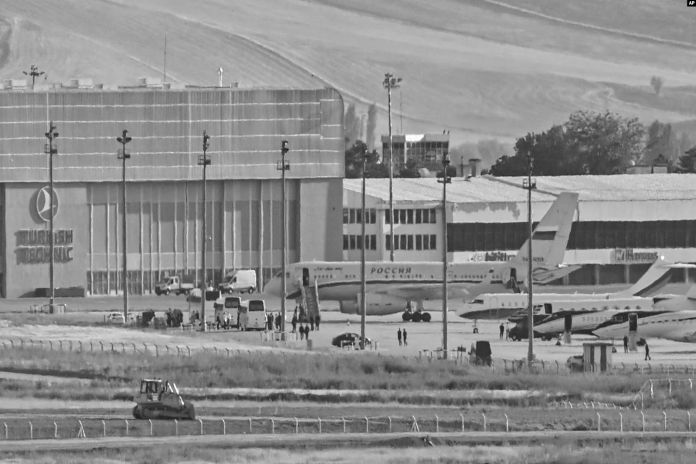By Peter Polack
Since the post-war, Cold War period there have been multiple prisoner exchanges between the West and the Russian or Soviet governments often popularly displayed in film by a meeting of the two sides at the Glienicke bridge which separated East and West Germany.
Perhaps the latest exchanges should have been made [here] rather than on an airport tarmac in Turkey given that Germany undoubtedly played the biggest part in closing the eventual deal by releasing convicted murderer and assassin Vadim Krasikov. Krasikov, a Putin declared favourite, was a Russian secret service Colonel who killed a Chechen dissenter in broad daylight in 2019 for which he was convicted in 2021.
Germany was the least to benefit from a deal that gave the USA a large number of American detainees and a political push for lame-duck president Joe Biden and possibly even Kamala Harris, the presumptive Democratic nominee for the next president of the USA.
In a recent interview, Putin’s arch-enemy Bill Browder declared that it was time the West considered prohibiting their citizenry from entering Russia given their reputation like many other dictatorships of taking hostages for later exchange. One can never forget the compelling video of Saddam Hussein stroking the hair of young British boy Stuart Lockwood from a group of detainees or human shields at the start of the Gulf War in 1990.
Browder made the point that these persistent acts of trading hostages can only embolden Putin and his international assassins. Browder has a right to be concerned given that he is likely at the top of the list of targets of Putin enemies.
Then there is the no simple matter of the persistent Russian policy of taking hostages, a threat that has substantially increased during the war in Ukraine for which things have gone badly for the Russian aggressors.
So what now?
For the most part, the prisoner exchanges often follow several hearings under the thin, cracked veneer of a judicial process in Russia, most likely to drum up sympathy at home for the detainees with political pressure to follow. Potential visitors to the pariah state of Russia should be forewarned that past swaps are without limitation for journalists, tourists or students, and even priests.
The human psyche is given on occasion to extreme behaviour and ignoring competent warnings. Popular tourist destination Jamaica has seen a US State Department warning to reconsider travel because of violence met with an increase in tourism arrivals.
Until the West has a comprehensive even creeping adjustment to their policies on visits to the tumultuous Russian state, their citizens should be warned of the likelihood of reduced assistance or hostage exchange.
There should be no more opportunities for journalists from prominent American or other newspapers to be falsely detained.
Cold gulags should not be the destination for fact-checkers, adventurers or the merely curious.
– Peter Polack is the author of The Last Hot Battle of the Cold War: South Africa vs. Cuba in the Angolan Civil War (2013), Jamaica, The Land of Film (2017) and Guerrilla Warfare: Kings of Revolution (2018).He was a contributor to Encyclopedia of Warfare (2013) and his latest book entitled Soviet Spies Worldwide: Country by Country, 1940–1988 will be published by McFarland in 2024.





